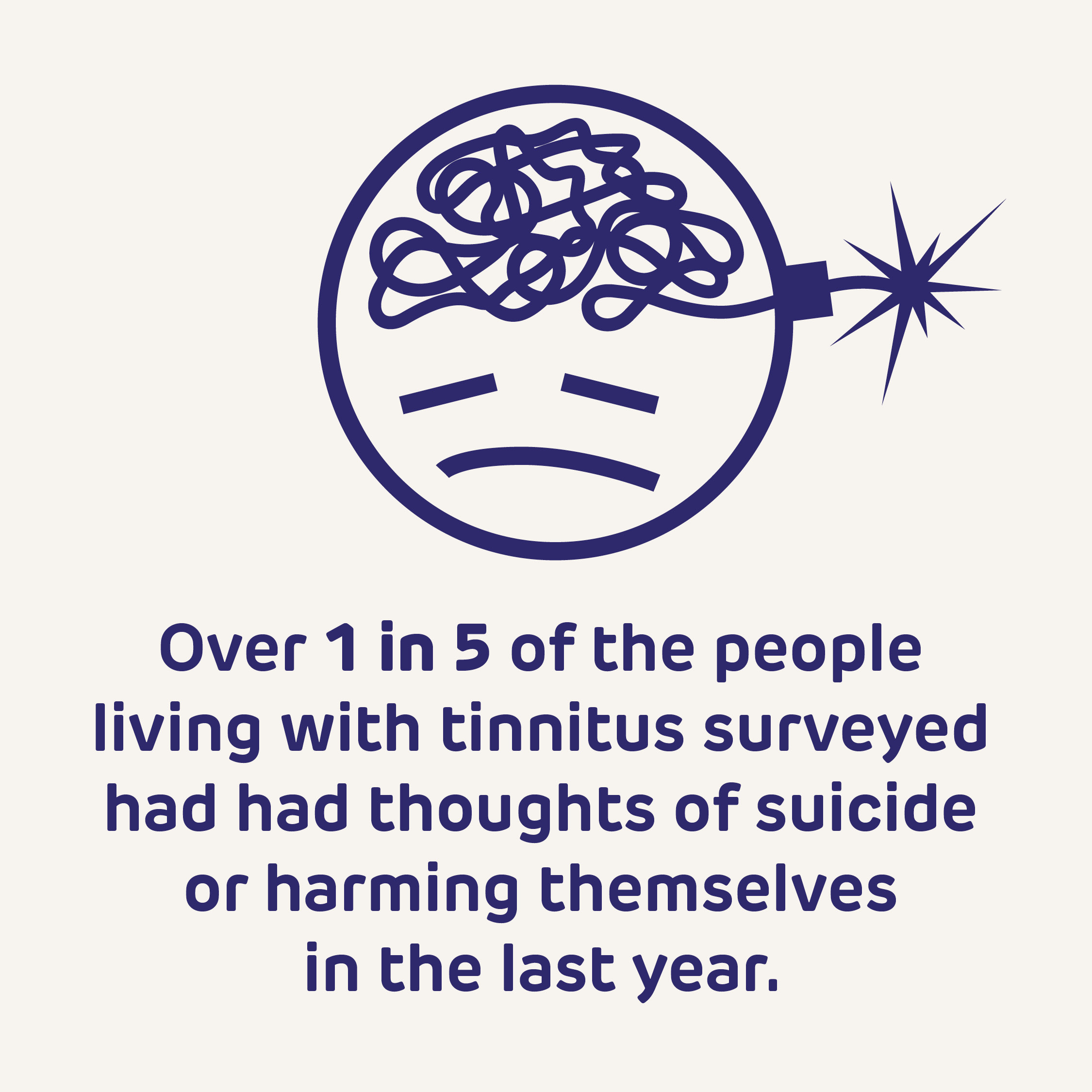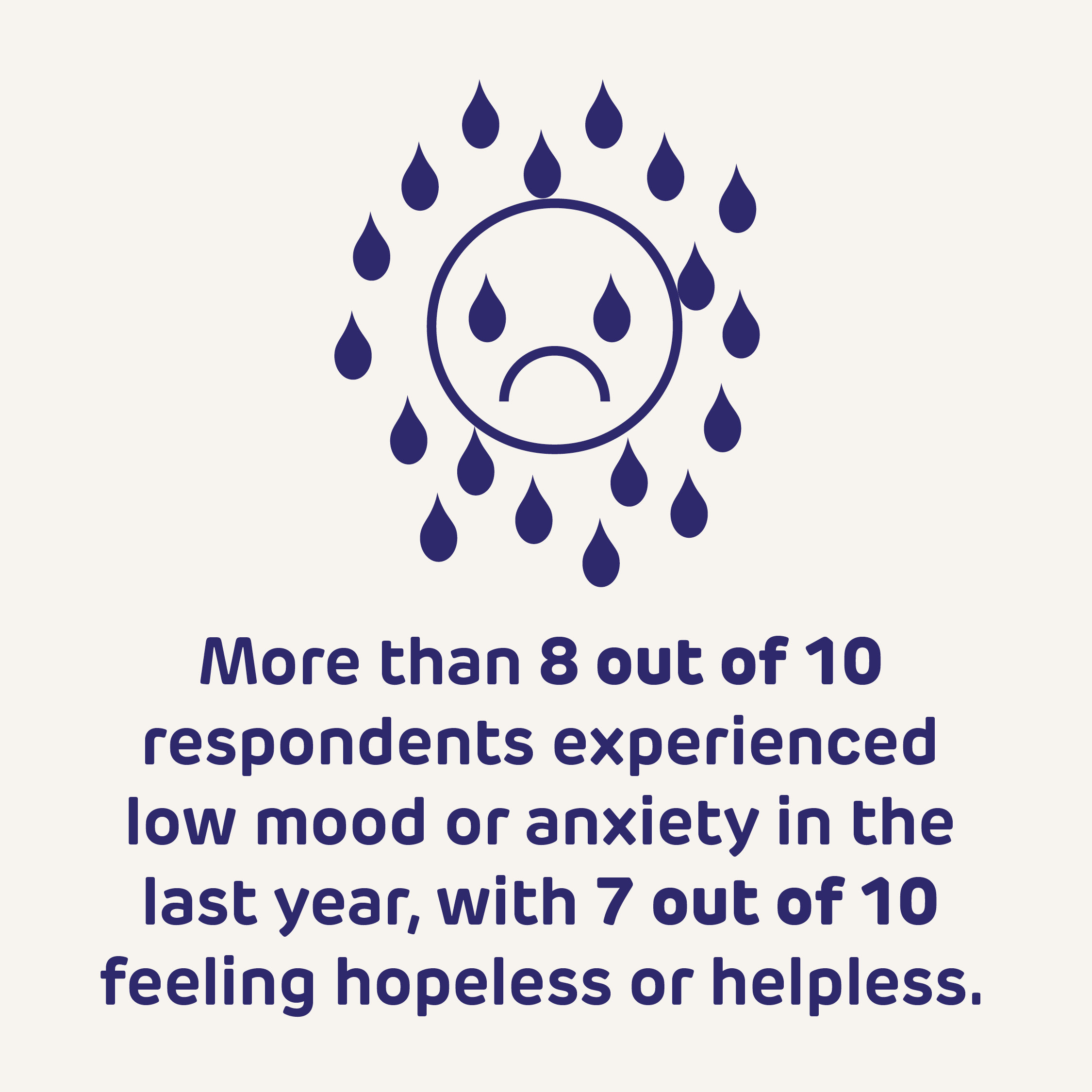Suicidal thoughts experienced by one in five tinnitus sufferers as new report from Tinnitus UK reveals lack of mental health support for the condition
Tinnitus has significant effects on medical health & wellbeing, resulting in emotional exhaustion, clinical anxiety, clinical depression, & insomnia.
Tinnitus UK, a leading independent charity dedicated to supporting individuals coping with tinnitus in the United Kingdom, today unveils groundbreaking research underscoring the critical need for enhanced healthcare support and services for those affected by this pervasive condition.
Startling statistics reveal the harsh reality of the tinnitus landscape, impacting 1 in 7 adults in the UK and severely diminishing the quality of life for 1 in 6 of those individuals.
In December 2023, Tinnitus UK conducted a study involving 478 people afflicted by tinnitus to delve into their experiences and the challenges they encounter in accessing healthcare support for the condition.
The findings are distressing:
- Over one in five respondents experienced thoughts of suicide or self-harm in the last year.
- More than 8 out of 10 reported low mood or anxiety, with 7 out of 10 feeling hopeless or helpless.
- 85.7% reported sleep disturbances.
- The emotional toll is significant, with 68.4% reporting low self-esteem and 54.9% struggling to think rationally.
Tinnitus is also linked to social isolation, impacting relationships and daily life, with two-thirds of respondents avoiding contact with friends, minimising social activities, or facing difficulties at work.
Despite National Institute for Health and Care Excellence (NICE) guidelines introduced in March 2020, substantial challenges persist in healthcare support for tinnitus sufferers.
- Half of respondents secured GP appointments within a week, but 16% waited over a month.
- Referrals to secondary care decreased to 57.9%, with 11.7% not offered a referral.
- Waiting times for secondary care appointments have increased, with the number of people waiting over a year tripling from 2019 to 2023, to 1 in 6 facing waits of more than 12 months.
- Limited mental health support is available, with only 5% offered Psychological Interventions such as Cognitive Behavioural Therapy (CBT).
In response to these alarming findings, Tinnitus UK is calling for immediate action:
- An evaluation of secondary care services and increased investment from commissioning bodies where necessary.
- Implementation of a standardized nationwide management model for tinnitus.
- Increased tinnitus education for medical professionals.
Commenting on the urgent need for action, Tinnitus UK’s Head of Services, Maisie Carscadden, said: “There has been a noticeable increase in people reaching out to us who need support for the mental health struggles that tinnitus has triggered. Their situation is often complex, and people are facing barriers accessing the services they need. We provide guidance, reassurance, and support to help them cope, but a significant number of these people require specialised care from health professionals. Unfortunately, the necessary resources are often lacking. We're dedicated to doing our part, but there needs to be collective efforts to bridge this gap and ensure everyone gets the care they deserve.”
James Jackson, Reader in Psychology at Leeds Trinity University, added: “While most people will eventually habituate to their tinnitus, it can be very distressing in the short-to-medium term, if not longer. It has significant effects on medical health and wellbeing, resulting in emotional exhaustion, clinical anxiety, clinical depression, and insomnia. It is vital that people have access to timely interventions to ensure that the impact on their quality of life is minimised.”
-Ends-
For media inquiries, please contact:
Joanna March
Head of Brand and Communications
0114 250 9933
Available for interview:
Nic Wray, author of the report
0114 250 9933
Dr James Jackson, Chartered Psychologist, Reader in Psychology, Leeds Trinity University, and tinnitus researcher
Case studies from around the UK who can share their own personal stories of living with tinnitus.
About Tinnitus UK:
Tinnitus UK, an independent charity dedicated to providing information and support for individuals living with tinnitus in the United Kingdom, plays a crucial role in enhancing the quality of life for those affected by this condition. The charity strives to facilitate improved well-being through a variety of support avenues, including online and in-person support groups, a helpline featuring a chatbot and live webchat, and an informative website.
Tinnitus UK, receives no direct government funding and is committed to educating both medical professionals and the wider community about tinnitus, advocating prevention, and working towards finding a cure.
About tinnitus
Tinnitus, characterised by hearing sounds such as ringing or buzzing without an external source, affects one in seven adults in the UK. While it can be a temporary annoyance for some, for others, it becomes a persistent and distressing companion.
For one in six people with tinnitus, the condition severely affects their ability to lead a normal life. This proportion is considerably higher in those that contact Tinnitus UK for support. Home, work and social life can be disrupted, leading to significant associated societal and healthcare costs.
Tinnitus-related healthcare costs in the UK amount to £750 million annually, with an anticipated increase as eight million people are expected to be affected by 2025.
At present, there is no known cure for tinnitus, and many tinnitus sufferers feel current treatment options are insufficient and often ineffective, and that health care professionals lack knowledge of the condition, and do not understand the impact it has.
Press release distributed by Pressat on behalf of Tinnitus UK, on Thursday 8 February, 2024. For more information subscribe and follow https://pressat.co.uk/
Tinnitus Anxiety Depression Insomnia Suicide Self-Harm Charities & non-profits Health
You just read:
Suicidal thoughts experienced by one in five tinnitus sufferers as new report from Tinnitus UK reveals lack of mental health support for the condition
News from this source:




